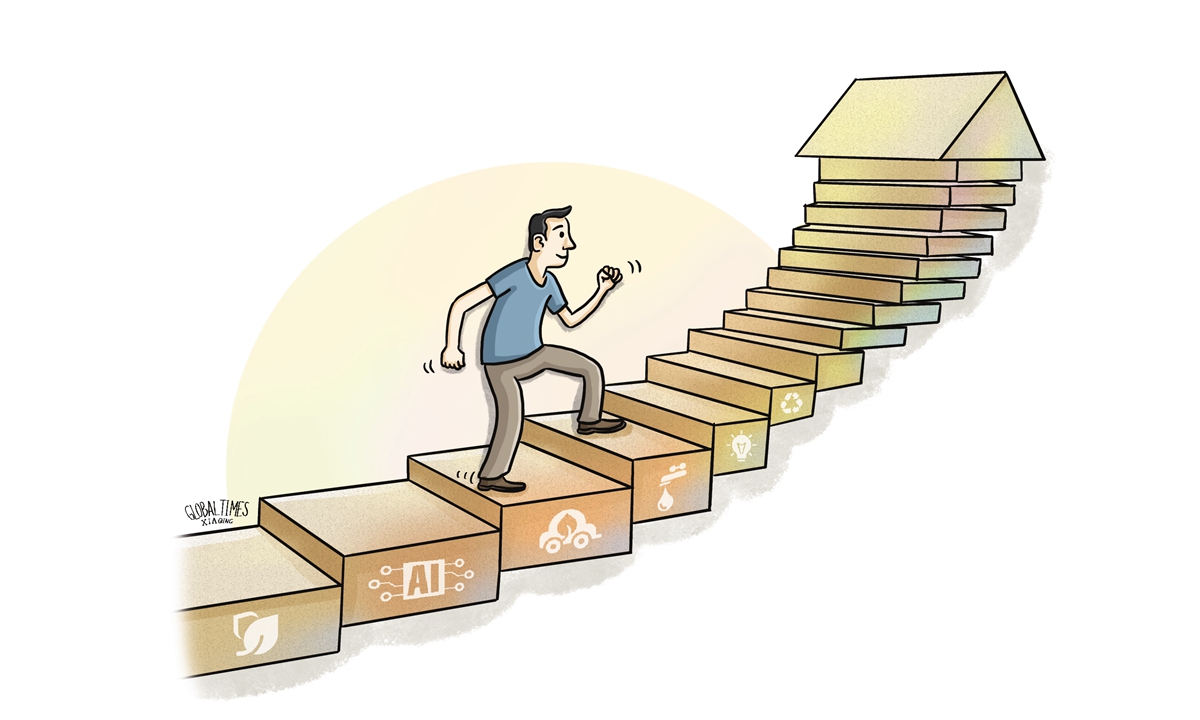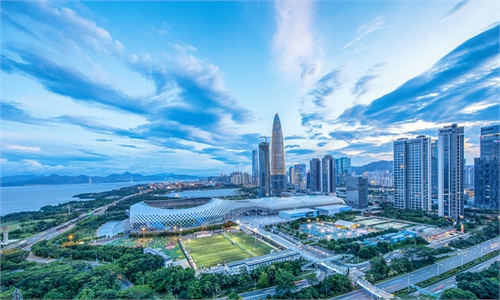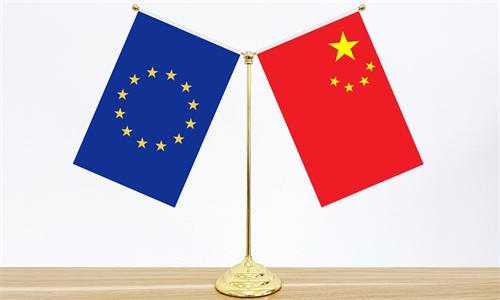
Illustration:Xia Qing/GT
Editor's Note:Whatever questions and doubts are tossed out by some Western politicians and media about China's openness to the world, China is rolling out red carpet for world friends and partners with open arms. "China is moving to a new phase of high-quality growth… with benefits globally," Jeffrey Sachs (Sachs), director of the Center for Sustainable Development at Columbia University, told Global Times (GT) at the 2023 China Development Forum (CDF) in Beijing. He added that US strategic of escalating the trade war is not working, as China will be able to innovate around the US barriers.
GT: What's your view on China's opening-up from your personal experience?
Sachs: China is moving to a new phase of high-quality growth, based on massive innovation in energy, digital, artificial intelligence, electric vehicles, and other green and digital technologies and services. I am optimistic that this will energize another generation of progress in China, with benefits globally.
Even during a year of turmoil in international financial markets and geopolitics, China will offer multinational companies a huge and dynamic marketplace with superior logistics and technology.
GT: How do you understand high-quality development in China?
Sachs: The key dimensions of high-quality development are common prosperity, environmental sustainability, and human wellbeing. Achieving these goals depends on a long-term vision, an operational plan, social peace, and innovation. I am confident that China has all the components needed for high-quality development.

Jeffrey Sachs Photo: Courtesy of Sachs
GT: Trade war has been going on for five years. Where do you think it is heading?
Sachs: Unfortunately, the US is escalating the trade war, by trying to limit China's access to advanced technologies and by trying to undermine China's leading technology companies such as Huawei, ZTE, and even TikTok. I don't think that the US strategy is working. China will be able to innovate around US barriers.
GT: Global Times recently published, "An open letter to White House: It's time to end the lose-lose trade war." What's your take on the trade war? What does it take to bring it toward an end?
Sachs: The Global Times is correct. Globalization is a win-win process. All countries gain by being part of a large, interconnected, and peaceful world. Trade, finance, and technology flows raise income levels and wellbeing. Unfortunately, some American geo-strategists think that China's gains are America's losses. That is a basic conceptual mistake in my view. Also, there are also groups in society that are adversely hit by trade, such as workers who lose their jobs to import competition. For these parts of society, it is important to have social policies to ensure retraining, new jobs, and income support. Unfortunately, the US political process has neglected such compensatory measures, leaving some parts of the US hard hit by trade, and thereby blaming China. This is the wrong approach. The winners from globalization should help those left behind. Everybody would then come out ahead.
GT: Market rules and political will, which will ultimately determine the future trend of the trade ties, as well as the comprehensive bilateral relationship between China and the US?
Sachs: Politics is crucial. We need responsible politicians in the US and elsewhere abiding by international rules under the World Trade Organization. I think it is vital for the US and China to engage in ongoing active dialogue and negotiations over trade, finance, digital technology, and arms control. It is also crucial for the US, China, and other countries and regions to support a strong WTO.
GT: As the biggest bank failure in the US since the 2008 financial crisis, is the Silicon Valley banking crisis likely to cause shocks in global financial markets? What role do you think China can play in stabilizing global financial markets?
Sachs: The tightening of monetary policy in the US and the Eurozone is necessary to control inflation, but it is leading to credit crises in the US, Switzerland, Germany, and no doubt some other countries in the coming months. All Central Banks should cooperate actively to prevent a global financial crisis such as in 2008. I believe that this can be done.
The US and Europe are likely to have a downturn in 2023, while China will continue its growth. In this regard, China will be an engine of growth for the world economy. China should also participate actively in global institutions to help avoid a financial crisis in the poorer countries as well as to help prevent the banking crisis from expanding.
The most important step to ease the global economic crisis is to end the war in Ukraine through a negotiated settlement. China's peace initiative is a superb contribution towards this goal.



